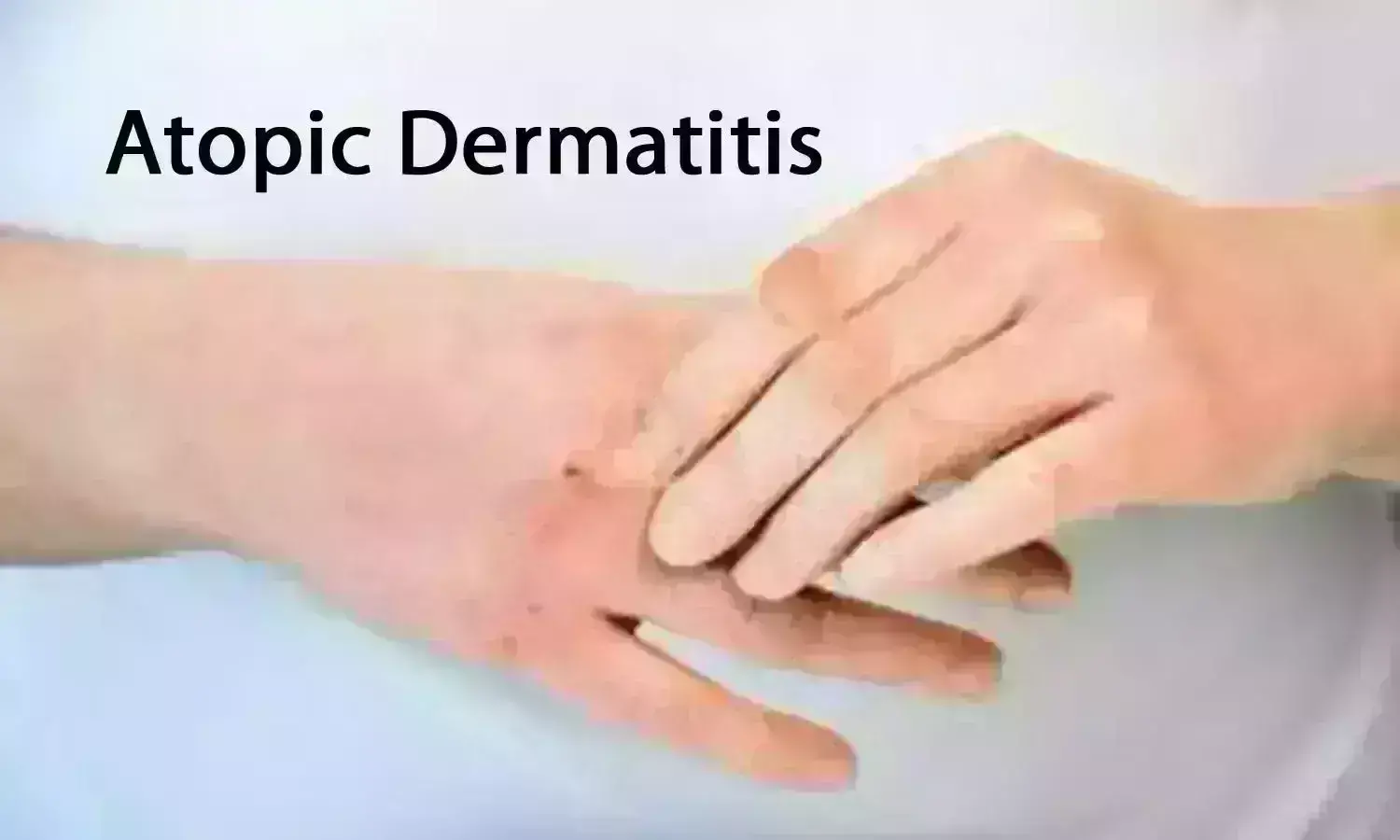- Home
- Medical news & Guidelines
- Anesthesiology
- Cardiology and CTVS
- Critical Care
- Dentistry
- Dermatology
- Diabetes and Endocrinology
- ENT
- Gastroenterology
- Medicine
- Nephrology
- Neurology
- Obstretics-Gynaecology
- Oncology
- Ophthalmology
- Orthopaedics
- Pediatrics-Neonatology
- Psychiatry
- Pulmonology
- Radiology
- Surgery
- Urology
- Laboratory Medicine
- Diet
- Nursing
- Paramedical
- Physiotherapy
- Health news
- Fact Check
- Bone Health Fact Check
- Brain Health Fact Check
- Cancer Related Fact Check
- Child Care Fact Check
- Dental and oral health fact check
- Diabetes and metabolic health fact check
- Diet and Nutrition Fact Check
- Eye and ENT Care Fact Check
- Fitness fact check
- Gut health fact check
- Heart health fact check
- Kidney health fact check
- Medical education fact check
- Men's health fact check
- Respiratory fact check
- Skin and hair care fact check
- Vaccine and Immunization fact check
- Women's health fact check
- AYUSH
- State News
- Andaman and Nicobar Islands
- Andhra Pradesh
- Arunachal Pradesh
- Assam
- Bihar
- Chandigarh
- Chattisgarh
- Dadra and Nagar Haveli
- Daman and Diu
- Delhi
- Goa
- Gujarat
- Haryana
- Himachal Pradesh
- Jammu & Kashmir
- Jharkhand
- Karnataka
- Kerala
- Ladakh
- Lakshadweep
- Madhya Pradesh
- Maharashtra
- Manipur
- Meghalaya
- Mizoram
- Nagaland
- Odisha
- Puducherry
- Punjab
- Rajasthan
- Sikkim
- Tamil Nadu
- Telangana
- Tripura
- Uttar Pradesh
- Uttrakhand
- West Bengal
- Medical Education
- Industry
Autologous Bacteriotherapy Effective For Treatment of Atopic Dermatitis: Study

A bacteriotherapy with an autologous strain of bacteria may safely be used in patients with AD to improve disease severity.
USA: A bacteriotherapy with an autologous strain of bacteria may safely improve the microbiome of patients with Atopic Dermatitis and improve disease severity, according to a study published in the journal JAMA Dermatology.
Atopic Dermatitis (AD), also known as Eczema, is an itchy inflammation of the skin that worsen in the presence of certain irritants or triggers and can also be negatively affected by Staphylococcus aureus. Coagulase-negative staphylococcus (CoNS), that can kill S. aureus, is deficient in the microbiome of patients with AD.
So, researchers from the Department of Dermatology at the University of California carried out a study to evaluate if the antimicrobial-producing CoNS (CoNS-AM+) of a patient with AD can be autologously reintroduced to the same patient to inhibit survival of S aureus and improve clinical outcomes.
They carried out a double-blind, vehicle-controlled, single-center randomized clinical trial of 11 adult patients with moderate to severe AD. The participants were randomized to receive either an autologous CoNS-AM+ or the vehicle, between April 2016 and May 2018. The data were analyzed from May 2018 to July 2019. Autologous CoNS-AM+ was isolated from swabs that were obtained from the non-lesional skin of the patients, expanded by culture, and then reapplied topically to the forearms at a concentration of 107 colony-forming units/g.
The primary end point of this study was to assess S aureus abundance after 1 week by culture-based and DNA-based methods. The secondary end points were to assess the safety and clinical outcomes.
The study showed the following results:
- There were no serious adverse events in groups treated with autologous CoNS-AM+ or the vehicle.
- Staphylococcus aureus colonization on lesional skin at the end of treatment on patients who were treated with autologous CoNS-AM+ was reduced by 99.2% compared with vehicle treatment and persisted for 4 days after treatment.
- Local Eczema Area And Severity Index scores that were assessed at day 11 on patients who received CoNS-AM+ were significantly improved compared with vehicle treatment.
These findings suggest that a bacteriotherapy with an autologous strain of bacteria may safely improve S. aureus colonization in the microbiome of patients with AD and improve disease severity.
"Although larger studies will be needed, this personalized approach for S aureus reduction may provide an alternative treatment for patients with AD beyond antibiotics, immunosuppression, and immunomodulation," the investigators concluded.
Reference:
Study titled, "Use of Autologous Bacteriotherapy to Treat Staphylococcus aureus in Patients With Atopic Dermatitis: A Randomized Double-blind Clinical Trial," published in the Journal of American Medical Association, Dermatology.
Medical Dialogues Bureau consists of a team of passionate medical/scientific writers, led by doctors and healthcare researchers. Our team efforts to bring you updated and timely news about the important happenings of the medical and healthcare sector. Our editorial team can be reached at editorial@medicaldialogues.in.
Dr Kamal Kant Kohli-MBBS, DTCD- a chest specialist with more than 30 years of practice and a flair for writing clinical articles, Dr Kamal Kant Kohli joined Medical Dialogues as a Chief Editor of Medical News. Besides writing articles, as an editor, he proofreads and verifies all the medical content published on Medical Dialogues including those coming from journals, studies,medical conferences,guidelines etc. Email: drkohli@medicaldialogues.in. Contact no. 011-43720751


